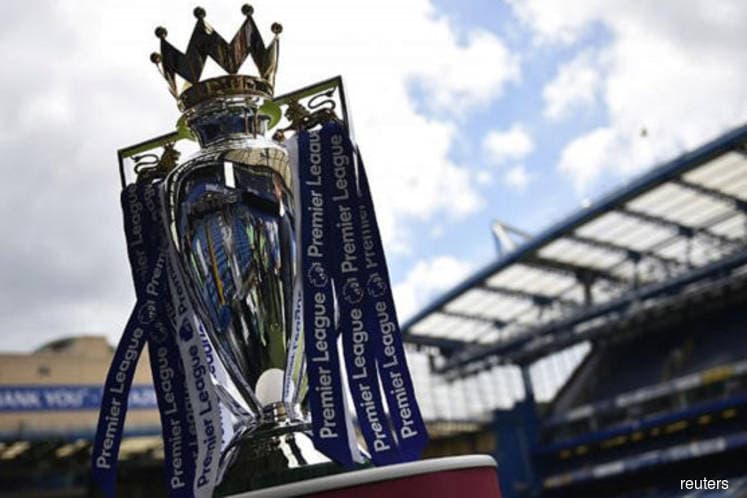
This article first appeared in The Edge Malaysia Weekly on September 17, 2018 - September 23, 2018
THE bubble has burst.” When Astro’s head honchos tell you that, you listen. Chief executive officer designate Henry Tan and head of sport Lee Choong Khay are not talking about any old bubble but the unmissable, all-conquering English Premier League (EPL) and its appeal in this part of the world.
Hermetically sealed by its own hype, the EPL has been both backbone and driver of sports coverage on satellite television in Malaysia for two decades. But it might just be becoming unsustainable.
Famously dubbed “prune juice” by Tottenham Hotspur’s ex-boss Alan Sugar, the billions of pounds that pass very quickly into English football (via mega broadcasting deals) and out again (to players and agents) has long been a bone of contention.
Here in Malaysia, whether watching from the sofa or at the mamak, we are acutely aware that we are funding the Jho Low lifestyles of foreign footballers.
But it is not the product, nor the excesses of what has been dubbed “the Greed is Good League”, that is worrying Astro.
It is piracy and changing viewing habits. “Pirates are having a field day,” says Tan. “There were 29,700 pirate sites during the World Cup globally. We have to pay an arm and a leg [for the rights] and the truth is that if we didn’t do the World Cup, we’d be better off in our P&L.
“Customers complain it is expensive, but if there was no piracy, the same costs could be shared. We have to ask ourselves how long is it sustainable to have sport as a loss leader? It doesn’t make financial sense — that’s the harsh reality. Escalating costs don’t help and then your revenue leaks to piracy. It’s a double whammy.”
Aston Villa fan Lee (better known as CK) is just as concerned about the audience. “I’ve spoken to some English clubs and they have noticed that interest in the game has started to decline among young people. I’m not sure a younger person would want a season ticket or to even watch for 90 minutes. And it’s the same here.
“Most young people like football, have their favourite team and favourite player, but it’s not by watching a full game, it’s by watching the clips on YouTube and playing FIFA, the game. They’ll buy the jerseys but it’s all about keeping up on social media. They are not real hardcore football fans. And it’s a similar story in the rest of the Southeast Asia. (Football) rights owners need to understand this changing trend.”
Young people are not just turning to other devices, they are turning to other sports — notably eSports.
Says Lee: “Football clubs have also noticed the trend to eSports and are coming up with their own teams. The prize money for the T18 eSports event is US$25 million — almost comparable to the World Cup final prize pool. There was a Malaysian in the final whose team was sponsored by Paris St Germain.
“They’re going down this avenue to engage with the millennials. They realise they have to do something different. We have done the same and have a 24-hour eSport channel — 808. It’s called eGG (Every Good Game) and is distributed to eight countries. We have not dealt with this demographic before ... we need to find ways to deal with them.”
From video games to potential game changers, existential threats are out there. Tech giants Facebook and Amazon are dipping a toe into these swirling waters — Facebook in Thailand, Vietnam, Cambodia and Laos; Amazon in the UK. Says Lee: “It will be interesting to see what happens and whether they pass on the charges.”
Astro does not, even though it pays what is widely believed to be in excess of RM1 billion for the EPL rights for three years. Unable to disclose the exact figure because of contractual obligations, the broadcaster regards itself as “the home of live sports in a great sporting nation”, and treats it as a loss leader. Today, one third of its five million subscribers take the sports pack and were able to enjoy the World Cup at no extra charge.
But viewers have noticed what Lee calls a “prioritising” of the EPL. Lesser competitions have been sacrificed while presenters are dispatched to the UK instead of bringing pundits to Malaysia.
It is ironic that belt-tightening in Southeast Asia is occurring at a time when the overseas rights — mainly because of deals with China, the US and the Middle East — are expected to make up for the first dip in the UK market in 15 years.
The EPL’s recently concluded domestic deal saw a drop of 14% from £5.14 billion (2016 to 2019) to £4.16 billion for 2019 to 2022.
Asked if he could see the day when Astro wouldn’t buy the EPL rights, Lee replied: “Yes, definitely. It’s very nice to have but it has to make sense.”
By showing sports content on digital and social media platforms and introducing its eGG channel, Astro has been nimble in adjusting to the new challenges. But it is standing by its hardcore viewers for whom it is introducing a new big screen experience with ultra HD next year.
The EPL may no longer be paramount, but in stock market terms, it will be more of a correction rather than a crash. For now.
Bob Holmes is a longtime sports writer specialising in football and will be writing a series for The Edge on the business of sports. His next piece in a fortnight will be on how Tiger Woods' return to form has boosted the flagging viewership of the game.
Save by subscribing to us for your print and/or digital copy.
P/S: The Edge is also available on Apple's AppStore and Androids' Google Play.